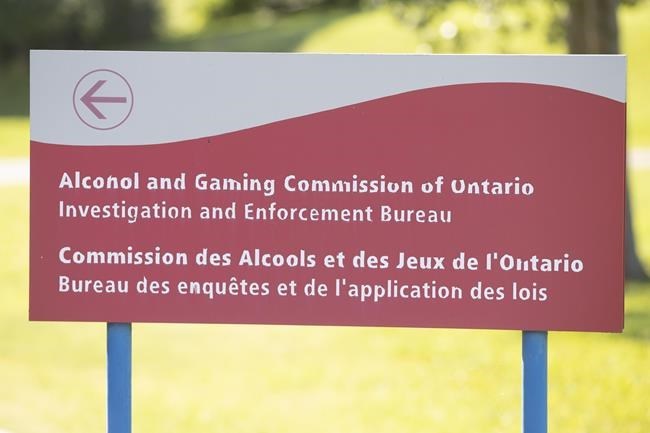TORONTO — Shelley White applauds officials for their management of Canada's only open market single-game sports betting industry. However, the CEO of the Responsible Gambling Council cautions against complacency in an ever-changing marketplace.
The industry opened fully in Ontario on April 4, 2022. The province's regulated market generated total gaming revenues of just over $1.48 billion in its first full year of operation.
The 2023 report is expected to be announced sometime in April.
"Usually a regulator will develop regulations and then keep those regulations for a decade before they do anything," said White. "But this regulator, the AGCO (Alcohol and Gaming Commission of Ontario), has made it a priority that it's going to monitor the regulations and make changes as they see changes are required.
"It's rare, actually, for regulators to do that. It is well known that the province of Ontario is a leader in responsible gambling globally."
Ontario is the only province in Canada with an open, regulated iGaming market. Sports betting and online casino gambling elsewhere in the country are operated through provincially run websites.
Last August, the AGCO announced it was banning the use of athletes in the advertising and marketing of internet gaming in Ontario. It also strengthened standards restricting the use of celebrities who'd likely be expected to appeal to minors.
Those restrictions came into effect Wednesday.
The AGCO has also come down hard on operators financially. In January, it levied a $70,000 fine against MGE Niagara Entertainment Inc., which operates PlayFallsview.com as well as Fallsview Casino Resort in Niagara Falls, Ont. The penalty was for "failing to meet requirements in place to minimize the risk of unlawful activity, including money laundering, at the gaming site."
The Responsible Gambling Council (RGC) was established in 1983 and strives to lessen the risks of gambling through awareness programs, better playing safeguards and the development of standards. The AGCO is responsible for regulating the alcohol, gaming, horse racing and cannabis retail sectors in Ontario.
In 2021, Queen's Park established iGaming Ontario (iGO) to conduct and manage internet gaming in the province.
White praised the AGCO, iGO and provincial government for including the RGC in discussions before the April 2022 launch and being progressive in the regulations they established. But she said none can afford to rest upon those laurels now.
"There's definitely more that needs to be done in terms of prevention education, absolutely," she said. "An increased investment in prevention education programs for youth, young adults and individuals who are gambling online and sports betting.
"That's so they're aware of the responsible gambling tools that are available and use those tools to ensure they are experiencing safer gambling. There is a need for greater investment in support as well."
iGaming operators in Ontario are now also required to provide a portion of their marketing/advertising budgets for responsible gambling advertising. It's a move White supports completely but again adds more must be done.
"We actually think the requirements and measures iGO has put in place have made a very big difference," White said. "But I'd say a greater investment needs to be made to the Responsible internet Gambling Fund.
"We need a commitment from the government that it's going to be annualized because this isn't a one-and-done kind of strategy. It has to be a multi-year approach because the industry is growing and we're learning. The fund needs to be larger because of the base of players and the complexity of the types of players, it's not a homogeneous group."
Michael Moskowitz, chair and CEO of NorthStar Gaming, said the operator is more than content with the provincial marketplace.
"NorthStar’s marketing approach has always been content and insights-driven and always will be," he said. "We ensure our players have the information and insights they need at their fingertips, allowing them to play and wager with confidence.
"NorthStar supports the refinement of Ontario’s regulatory framework, including marketing guidelines that eliminate the use of athletes, retired athletes and celebrities, in addition to other individuals that appeal to youth.”
The RGC's recommendation to government has been to continue to prioritize prevention education.
"We know prevention education makes a difference," she said. "It's also a lot less expensive to put into place than treatment programs and much more successful.
"For a modest investment into prevention education, we can have a huge impact and Ontario will remain a leader in consumer protection."
This report by The Canadian Press was first published Feb. 28, 2024.
Dan Ralph, The Canadian Press



